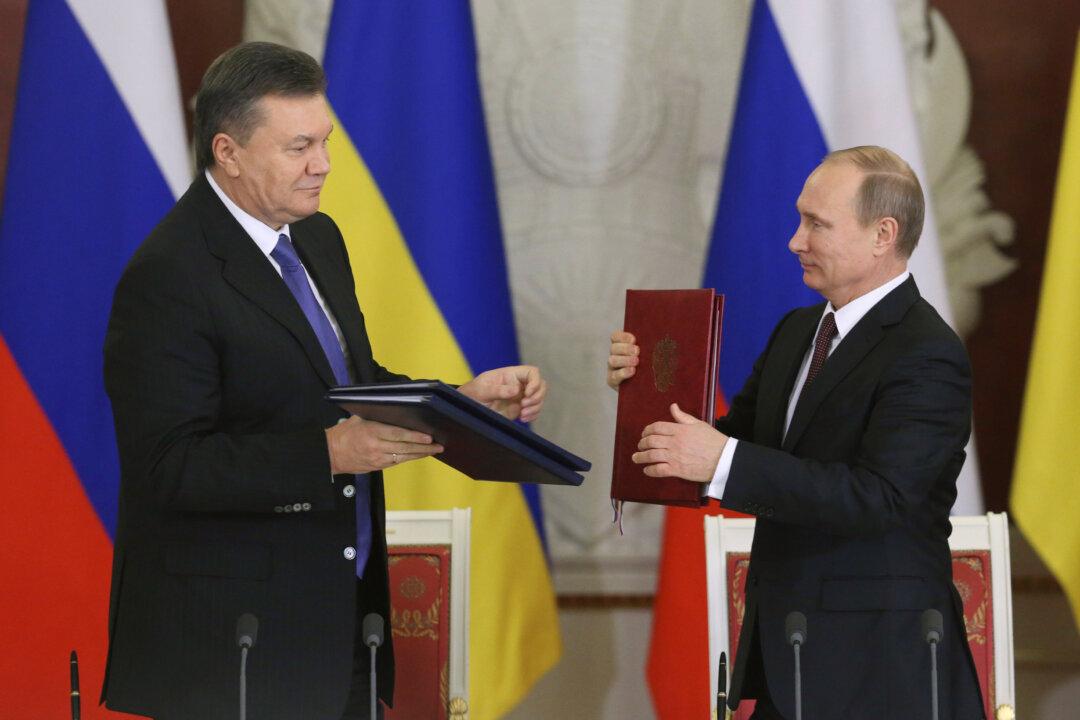LONDON/KIEV—Britain’s court of appeal has ruled that Ukraine had a justiciable defense in a $3 billion Eurobond case that was originally brought by Russia and said the case should be allowed to go to full trial.
The decision in effect sets aside a lower court judgment that went in favor of Russia in March 2017, when a judge ruled the case, centered around money that Moscow lent to Kiev in 2013, shouldn’t proceed to trial because Ukraine hadn’t offered a defense that was justiciable—or capable of being settled in court.





